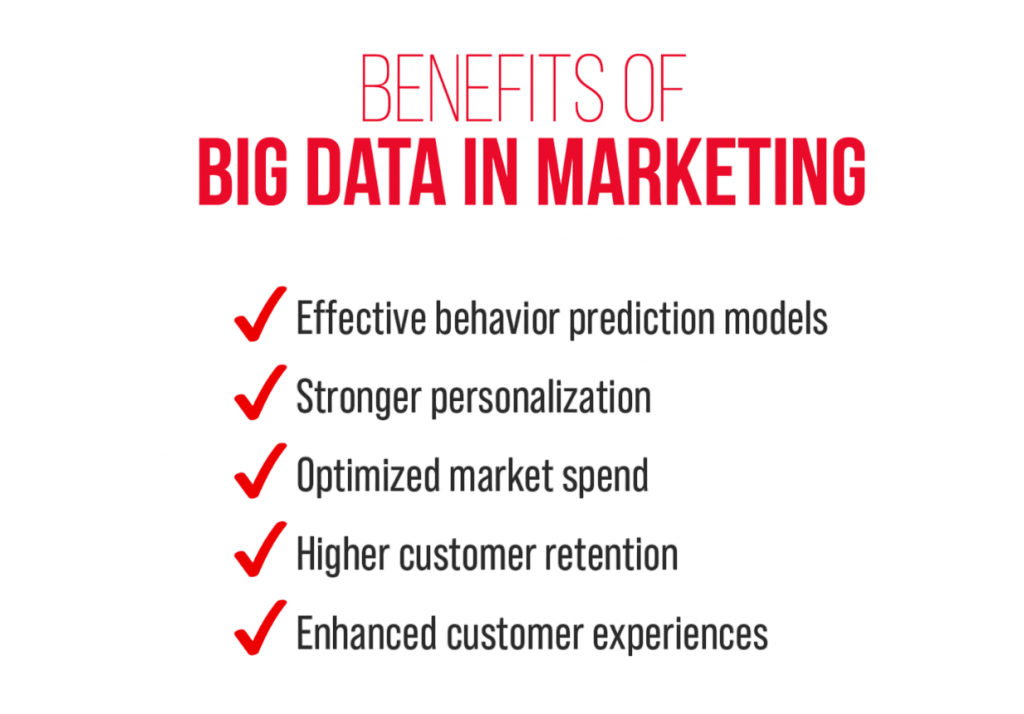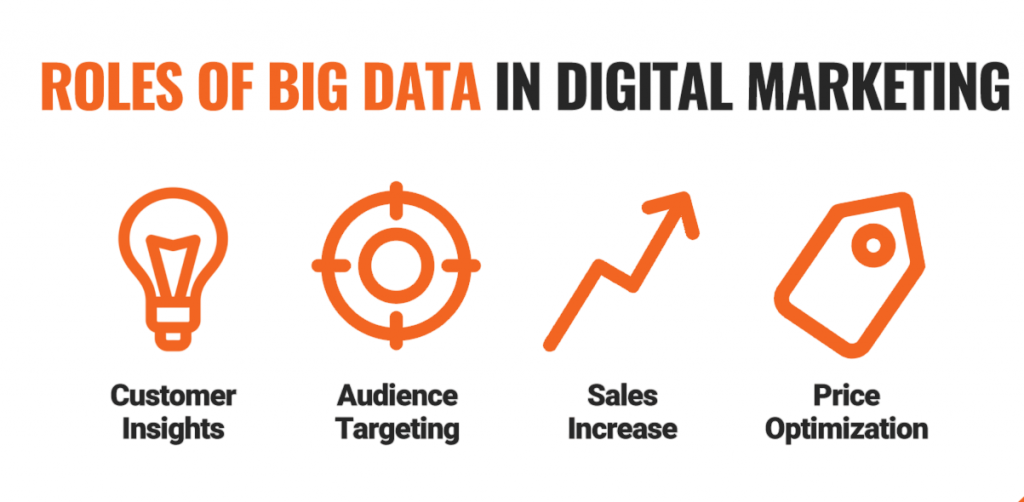
- Master Marketing Analytics: Hadoop Online Training
- Big Data in Marketing
- Role of Hadoop in Data-Driven Marketing
- Collecting Consumer Data with Hadoop
- Analyzing Market Trends
- Customer Segmentation
- Personalization Using Hadoop Insights
- Hadoop Tools for Marketing Analytics
- Real-Life Marketing Case Studies
- Conclusion
Master Marketing Analytics: Hadoop Online Training
In today’s fast-paced digital world, marketers deal with a huge amount of marketing analytics using data. Understanding this data is essential for success. Businesses produce large amounts of information every second, covering everything from customer clicks to purchase histories. To connect with consumers and stand out, modern marketers need to master marketing analytics. For hands-on skills in interpreting, visualizing, and leveraging this data, explore Data Analytics Training a career-focused program that equips learners with the tools and techniques needed to thrive in today’s data-driven landscape. This involves going beyond basic reports and exploring what drives consumer behavior. Embracing tools like Hadoop has become crucial. For the next generation of marketers, Hadoop online training provides a way to uncover valuable insights. This helps them make smarter decisions and create personalized experiences that resonate with consumers. It’s about turning raw data into actionable strategies that move campaigns forward.
Big Data in Marketing
The massive amount, variety, and speed of data generated every day have started the era of Big Data. In marketing, this means terabytes of consumer data, social media discussions, website visits, and transaction records. Traditional data processing methods often have a hard time keeping up with this scale.

To understand how modern frameworks overcome these limitations, explore Hadoop Vs Apache Spark a detailed comparison that highlights their architecture, speed, scalability, and suitability for handling massive datasets in real-time environments. Still, Big Data in Marketing offers amazing opportunities. It lets businesses see their customers from all angles, understand their preferences, and predict future actions more accurately. From improving ad spending to spotting new market trends, the power of Big Data is clear. Marketers who can use this data have a better chance of creating engaging campaigns and achieving higher returns on investment.
Interested in Obtaining Your Data Analyst Certificate? View The Data Analytics Online Training Offered By ACTE Right Now!
Role of Hadoop in Data-Driven Marketing
Hadoop is an innovative framework designed to store and process large datasets across clusters of computers. It plays a crucial role in data-driven marketing. To master this technology and launch a high-impact career in big data, explore Become a Hadoop Developer a practical guide that outlines the skills, tools, and learning paths needed to thrive in today’s data-centric landscape.
- Scalability: Hadoop can easily expand to handle more data without requiring expensive hardware upgrades. This allows marketers to gather more consumer data without worrying about storage limits.
- Cost-Effectiveness: It uses standard hardware, making Big Data processing cheaper than traditional solutions. Budget-conscious marketing teams can take advantage of its capabilities.
- Flexibility: Hadoop can process different types of data, including structured, semi-structured, and unstructured data like social media posts or video transcripts. This supports thorough marketing analytics.
- Fault Tolerance: If one part of the system fails, Hadoop keeps working, ensuring data availability and processing uptime. This reliability is essential for ongoing campaigns.
- Distributed Processing: Its MapReduce programming model enables the parallel processing of large datasets, which significantly speeds up the complex analysis needed for market trend analysis.
- Centralized Storage: The Hadoop Distributed File System (HDFS) offers a huge, scalable storage solution that can hold petabytes of data from various sources. It serves as a central repository for all consumer interactions.
- Handling Diverse Data: Unlike traditional databases, HDFS does not require data to be structured in advance. This lets marketers store raw, unstructured data, like sentiment from customer reviews or clicks from ad campaigns, directly.
- Real-Time Ingestion (with related tools): Although Hadoop itself is designed for batch processing, it works well with tools like Apache Kafka or Flume. These tools allow the streaming data to be added to HDFS for later analysis, capturing customer behavior as it happens.
- Data Lake Foundation: Hadoop provides the foundation for a “data lake,” where all raw data is stored. This enables marketers to keep every piece of information, knowing they can analyze it later for various purposes, such as spotting new market trends or improving customer segmentation.
- Apache Hive: This data warehouse software allows users to read, write, and manage large datasets in distributed storage by using SQL-like queries. Marketers who know SQL can easily query large amounts of consumer data.
- Apache Pig: Pig is a high-level scripting language designed for analyzing large datasets. It enables complex data transformations and analyses without writing long Java MapReduce code, making data manipulation simpler.
- Apache Spark: Although not strictly part of Hadoop, Spark is often integrated with it. It provides faster processing for Big Data workloads, supporting real-time processing, machine learning, and graph processing. This is crucial for quickly analyzing market trends.
- Apache Kafka: This distributed streaming platform is great for ingesting large volumes of real-time data, such as website clicks or sensor data, into the Hadoop ecosystem for immediate or batch processing.
- Hue: This web-based interface makes it easier to interact with Hadoop components, run queries, and browse data. It enhances usability for marketing analysts.
- Netflix: This streaming giant relies on Hadoop to collect and analyze customer viewing habits. By processing large amounts of data about what users watch, when they watch it, and how they engage with content, Netflix offers highly personalized recommendations. This strategy is essential for retaining and growing their subscriber base. Their customer segmentation based on viewing patterns is extremely advanced.
- Facebook: Facebook uses Hadoop to process and store vast amounts of user data, such as posts, likes, shares, and ad interactions. This enables them to deliver targeted advertisements and grasp market trends in real-time, significantly improving their advertising platform’s effectiveness.
- eBay: The e-commerce leader employs Hadoop to analyze user search queries, purchase history, and browsing patterns. This helps them optimize search results, customize product recommendations, and identify fraud. Their ability to manage and scrutinize such varied consumer data directly influences their sales and user experience.
- Target: This retail chain is known for using big data marketing analytics to understand customer behavior and predict purchasing trends, even for sensitive situations like pregnancy. Hadoop supports their capability to process diverse transaction and demographic data for highly targeted promotions and personalization.
To Explore Data Analyst in Depth, Check Out Our Comprehensive Data Analytics Online Training To Gain Insights From Our Experts!
Collecting Consumer Data with Hadoop
Collecting raw consumer data is the first crucial step in any solid marketing analytics strategy. However, the large amount and different formats of this data, from website logs and social media feeds to CRM records and mobile app usage, make traditional collection and storage difficult. Here’s how Hadoop proves to be essential:
Analyzing Market Trends
Understanding market trends is key to staying competitive and relevant. Marketing teams must quickly spot shifts in consumer preferences, new product categories, and competitor activities. With Hadoop, analyzing large datasets for these insights becomes easier. Marketers can examine historical sales figures alongside social media conversations and news articles to find patterns.

To build the skills needed for such analysis, explore Data Analytics Training a hands-on program that empowers professionals to extract actionable insights, optimize campaigns, and make data-driven decisions with confidence. They can track keyword search volumes, study competitor pricing strategies, and observe how global events affect consumer behavior. Additionally, Hadoop supports complex predictive modeling, which helps forecast future trends based on past data. This ability enables marketers to adjust their strategies, launch timely campaigns, and use resources effectively, ensuring their messages match the current market pulse. Strong marketing analytics powered by Hadoop gives the foresight needed for smart decision-making.
Gain Your Master’s Certification in Data Analyst Training by Enrolling in Our Data Analyst Master Program Training Course Now!
Customer Segmentation
Effective customer segmentation is the foundation of personalized marketing. Instead of treating all customers the same, segmentation groups them based on shared traits, behaviors, or needs. Hadoop makes this process very advanced. By processing large datasets of customer demographics, purchase history, website interactions, and social media activity, marketers can discover detailed segments that traditional methods might miss. For instance, they can pinpoint “value-conscious buyers,” “early adopters of technology,” or “loyalty program enthusiasts.” To understand the scale and strategic impact of this transformation, explore How big Is Big Data a comprehensive guide that reveals the magnitude of modern data and how it’s reshaping industries through precision targeting and predictive insights. This deep understanding enables highly targeted campaigns. Imagine sending personalized product recommendations or special offers only to the group most likely to buy. This precise marketing not only boosts conversion rates but also strengthens customer relationships, increasing loyalty and lifetime value. Hadoop online training provides marketers with the skills needed to perform such detailed segmentations.
Are You Preparing for Data Analyst Jobs? Check Out ACTE’s Data Analyst Interview Questions and Answers to Boost Your Preparation!
Personalization Using Hadoop Insights
Once customer segmentation is complete and market trends are clear, the next step is using these insights for effective personalization. Hadoop’s ability to process and analyze detailed customer data opens up new possibilities for tailored marketing experiences. Marketers can use insights from Hadoop to provide relevant content, product recommendations, and offers to individual customers or particular segments. For example, if Hadoop analysis shows that a segment prefers email communication over push notifications and responds well to discount codes, campaigns can be designed to match those preferences. To explore how these data-driven strategies are reshaping commerce, check out Big Data is Transforming Retail Industry a detailed article that highlights how big data empowers personalized marketing, smarter inventory decisions, and customer-centric innovation. This kind of personalization applies to website experiences, ad targeting, and even customer service interactions. By understanding each customer’s unique journey and preferences, businesses can offer a smooth and engaging experience. This, in turn, boosts customer satisfaction, increases conversion rates, and builds stronger brand loyalty. It highlights the real impact of effective marketing analytics.
Hadoop Tools for Marketing Analytics
The Hadoop ecosystem has many marketing tools that enhance its core capabilities, making it a strong platform for marketing analytics. These tools make data processing, analysis, and visualization easier. To dive deeper into this powerful combination, explore Big Data & Hadoop an insightful article that explains how Hadoop’s ecosystem supports scalable analytics, real-time insights, and smarter marketing decisions.
Real-Life Marketing Case Studies
Many companies have successfully used Hadoop to improve their marketing efforts, creating strong marketing case studies. To build the skills needed to drive similar results and launch a data-driven career, explore Become a Big Data Analyst a practical guide that outlines the tools, techniques, and learning paths required to turn raw data into actionable business insights.
These examples highlight the significant value of Hadoop online training for marketers who want to reach similar levels of data mastery.
Conclusion
The field of Master Marketing Analytics is changing quickly due to the surge of digital data. For today’s marketers, just knowing marketing principles is not enough. They must effectively collect, process, and analyze large datasets. Hadoop is a powerful and flexible framework that helps marketers turn raw consumer data into useful insights. With better marketing analytics, precise customer segmentation, and effective market trend analysis, marketers can create meaningful personalization. To build the skills that make this possible, explore Data Analytics Training a hands-on program designed to help professionals master data tools, interpret complex datasets, and drive smarter marketing decisions. Investing in Hadoop online training is essential. It gives marketing professionals the skills needed to handle the challenges of Big Data, run smarter campaigns, and achieve measurable success in a data-driven environment. Embrace Hadoop and be ready to lead marketing into the future.


